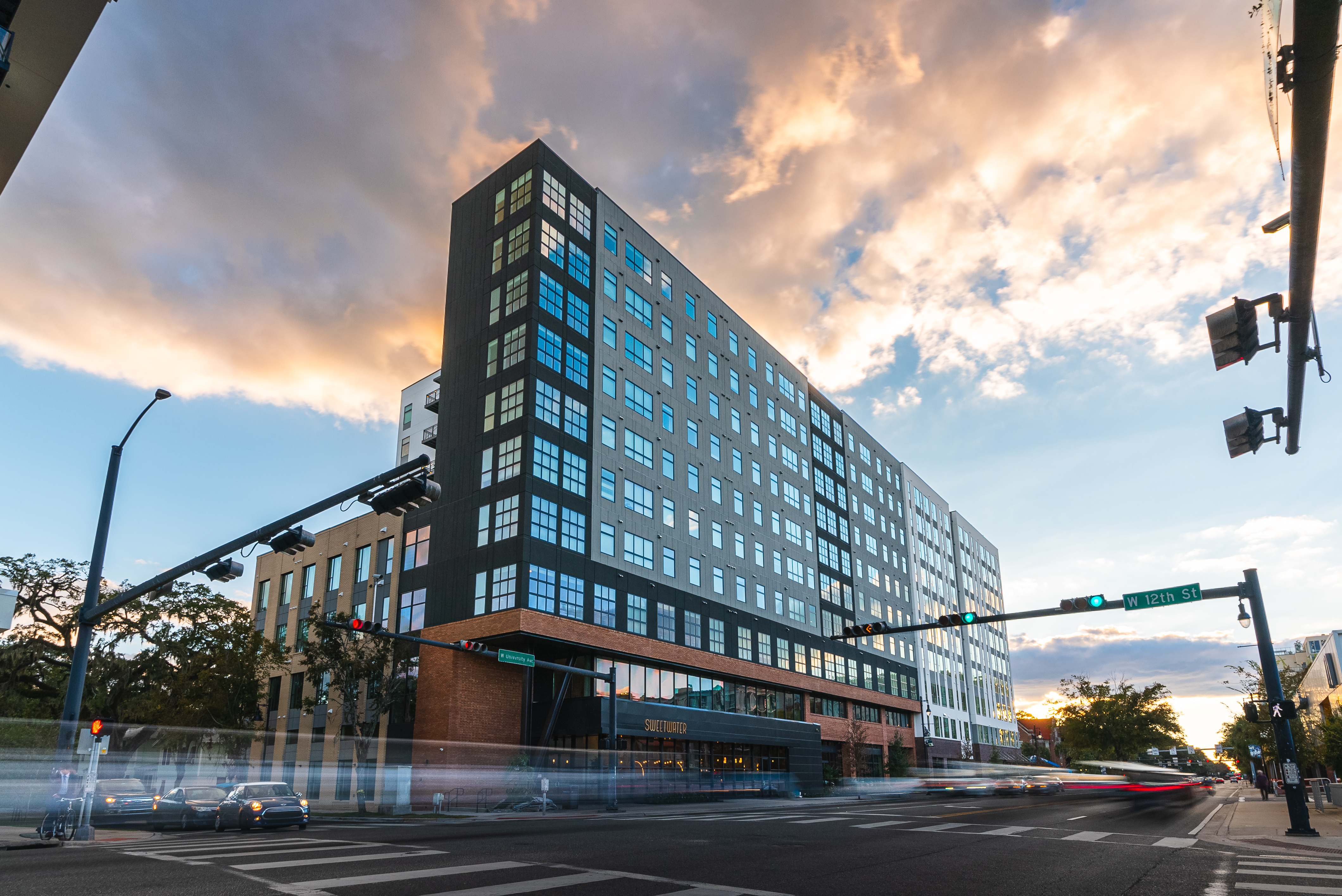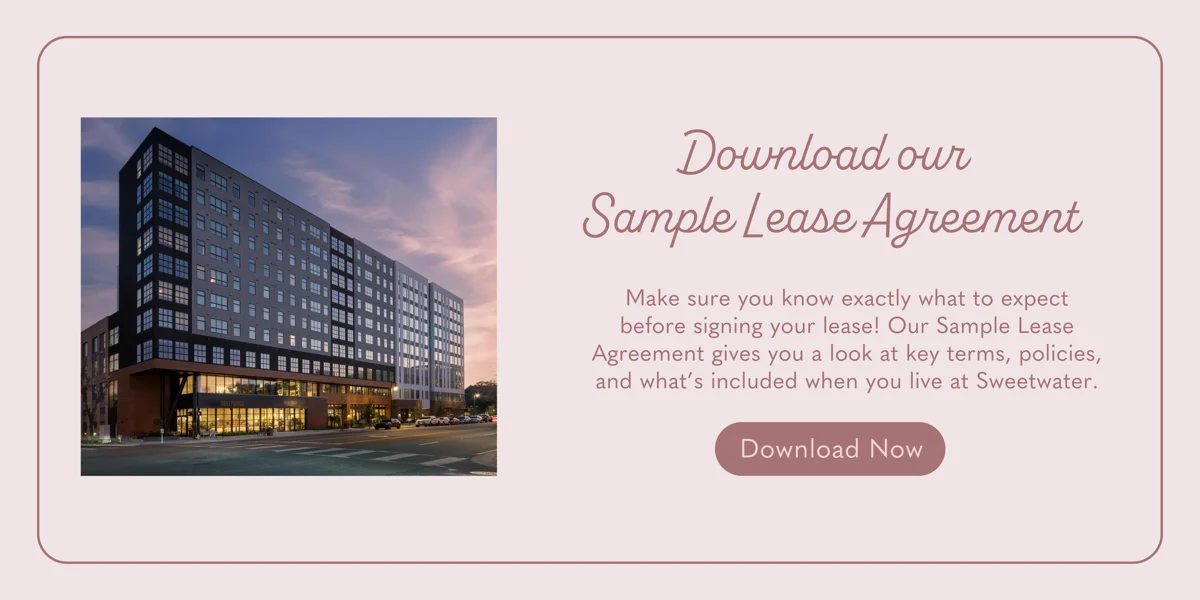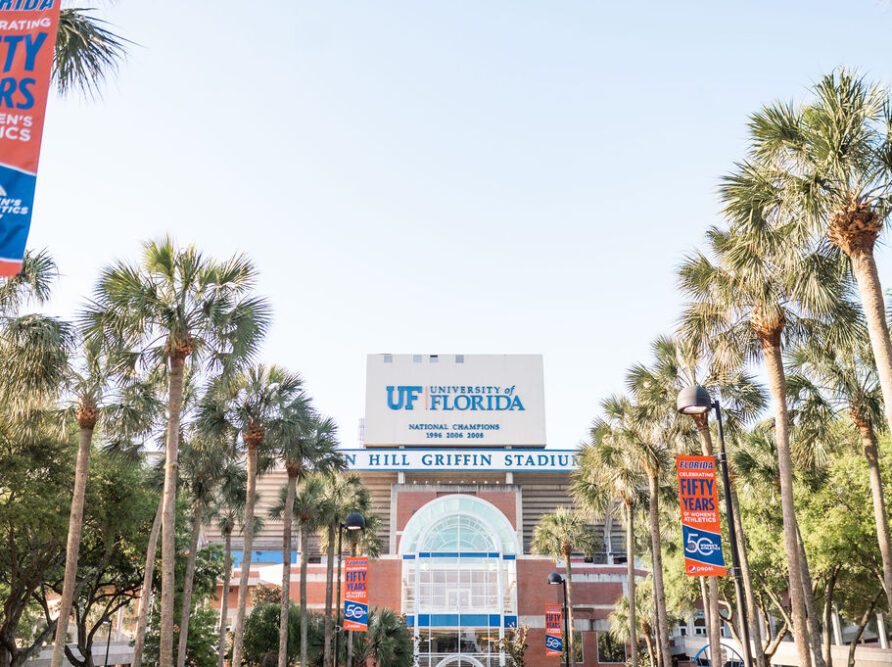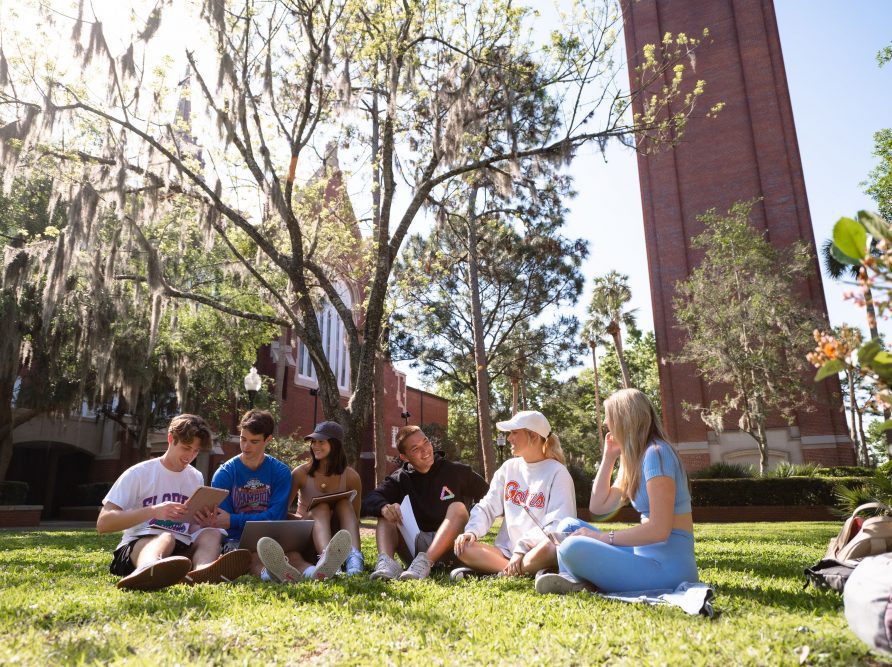Signing a lease can be a daunting experience, especially if you’re not familiar with the process. This is why it’s important to understand every step of the student housing search, from touring different apartments to signing a lease at the perfect place for you.
Read Next: Where Do UF Students Live?
At Sweetwater, we’ve helped many students through the lease signing process, and we understand that it can be stressful and complicated.
We made this article to answer all of your questions related to signing a lease, including:
What is a Lease?
Before explaining how to sign a lease, it’s important to understand what a lease is.
A lease is a contractual agreement between a landlord and tenant. A lease outlines what a tenant is responsible for, including cost of rent and the length of time that the tenant is committing to pay rent for.
There are different types of leases, but most student housing options in Gainesville have individual leases.
Individual Student Housing Leases
Individual leases are very common at student apartment complexes surrounding UF.
Simply put, individual leases are leases that are signed individually by each roommate in a unit. Each roommate takes responsibility for their room and the communal spaces, and each roommate only is responsible for paying their own rent. If damage is caused in one bedroom or if one roommate fails to pay their rent, only the tenant in that bedroom would be responsible for it.
Here’s an example: If you are living in a 3×3 (3 bedrooms and 3 bathrooms), each roommate would sign their own lease for their own room and bathroom, plus communal spaces. Therefore, three individual leases would be signed. All three roommates living in the apartment would pay their rent on their own.
Things to Look for When Signing Your Lease for Student Housing

Sweetwater is located at 1225 W University Avenue, just one block from the UF campus.
Now that you know what a lease is, we can talk about how to sign a lease and what you should look for when signing.
Understanding the specific terms that you are agreeing to is very important, so here is a list of what you should look for when reading a lease:
- Important dates – The most important dates you should look for are move-in, move-out, holidays and renewals. Make sure you have a calendar with you when looking at dates on a lease so you can mark these dates down and make sure they work with your schedule.
- Important fees – Leases should explicitly list the fees that are included in your rental rate and any additional fees that you may be expected to pay. Look out for any unexpected fees before you sign.
- Rent amount and due date – Make sure that the rental rate you are signing for is the rate that you were expecting, and look for when your rent is due each month. This will help to avoid any late payments, which can lead to late fees.
- Renters insurance – Renters insurance is always a good idea to have, but some apartments require it, so make sure to read the lease to find out if it’s required or just recommended. Also, some apartments offer rental insurance of their own for a small fee, so make sure you understand the policy before signing.
- Pet policy – Most apartment complexes have fees related to having a pet in the apartment, so if you’re planning on bringing your pet to school, make sure the pet policy is what you’re expecting. Specifically, look out for the cost of a pet deposit and/or pet monthly fees, plus any regulations on animal or breed.
- Length of the lease – Most leases for student apartments in Gainesville are 12 months, but make sure to ask before you sign your lease. Some properties allow for shorter leases but are often priced higher per month than 12-month leases for the same space.
- Renewing your lease – Leases typically end on the date listed on the lease, but if you would like to renew and stay for another set period of time, you typically have the option to do so. To know when you would have to renew by, look for the renewal date listed on the lease.
- Breaking your lease – While nobody wants to have to break their lease, life happens, and it’s best to know what would happen just in case. To be safe, familiarize yourself with the lease breaking policy.
- Reletting – Whether you plan on studying abroad, or are planning an extended trip to visit family, you’ll want to plan ahead if you might need to get away for an extended period. If there’s a chance that you may want to relet your apartment, read your lease to determine whether you’re allowed to relet. Some landlords prohibit it, some allow it, and some allow it only with approval. If the lease does not mention reletting, you should ask your landlord to clarify.
Read Next: 15 Questions You Should Ask When Touring a Student Housing Apartment at UF
Time to Sign a Lease
Okay, you’ve found the perfect apartment, and you’re ready to sign the lease. You look over the lease, checking all of the sections listed above, and you are ready to sign. What do you do next?
In order to sign a lease at an apartment in Gainesville, most students need a guarantor to co-sign on the lease, so the next step is picking your guarantor.
So, what is a guarantor?
A guarantor is someone who co-signs the lease and is responsible for any rent payments that you cannot or do not make. Most students need a guarantor because they do not make enough income to sign a lease on their own. Landlords typically want tenants to make income three times the cost of rent to be able to sign a lease on their own. This is unrealistic for most students, so they get a guarantor, typically a parent or guardian, to co-sign on the lease.
After your lease is signed by you and your guarantor, and your credit check is passed, your lease should be ready for approval!
While signing a lease might seem like a complex process, once you understand all of the steps, it’s really not that complicated. If you get lost on your student housing journey, feel free to contact the leasing staff at Sweetwater, and they would be happy to help you.
And just like that, you are one step closer to signing a lease at an apartment near UF!




